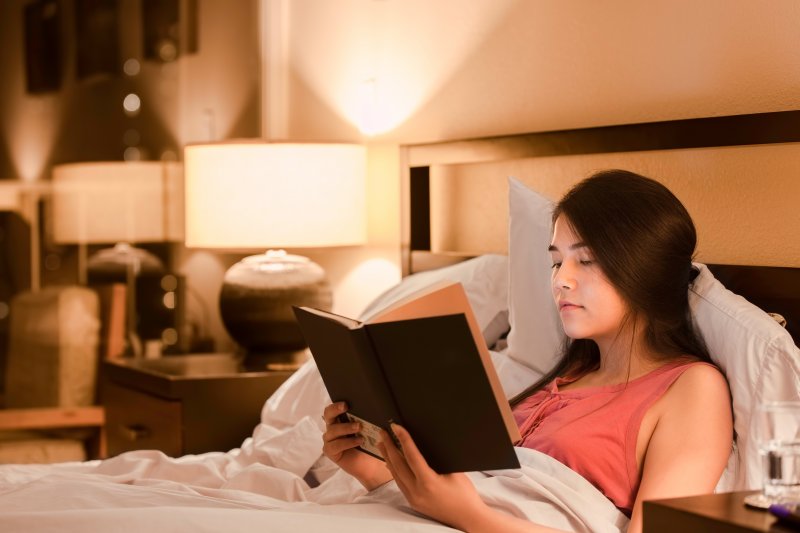
The number of people experiencing issues falling and staying asleep is on the rise, and researchers believe this is largely due to the fact that many are exposed to blue light emitted by phones and TV screens immediately before bed. According to experts, blue light delays melatonin release (the hormone that regulates sleep and wakefulness), with sleep suffering as a result. Research proves that those who make checking technology before bed a regular habit experience a more difficult time falling and staying asleep.
The Facts
In a 2017 study by the University of Haifa and Assuta Sleep Clinic, blue light was proven to make it much harder for a person to fall asleep while simultaneously damaging the duration and quality of rest.
The study consisted of 19 healthy adults ages 20-29, who were placed in front of a computer screen between 9pm and 11pm, the hours when the body begins to naturally produce melatonin. The screen exposed them to four different types of light: high-intensity blue light, low-intensity blue light, high-intensity red light, and low-intensity red light.
- After exposure to red light (at both intensities), participants experienced an average of 4.5 unnoticed awakenings
- Low-intensity blue light = 6.7 awakenings
- High-intensity blue light = As many as 7.6 awakenings
Test showed that blue light disrupted the production of melatonin and shortened sleep duration by approximately 16 minutes. It also significantly disrupted the continuity of sleep.
Unsurprisingly, those exposed to blue light also reported that they felt tired and in a worse mood.
For many of us, checking a phone or watching TV on a laptop is a natural way to wind down, taking your mind off of stress at work or at home. While it’s tempting to look at our devices until the very last minute before falling asleep, there are other methods of relaxation that are both entertaining and stress-relieving while also promoting healthy rest.
Why You Should Try Reading Instead
You’ve probably heard the advice to wind down with a book at bedtime before — it’s commonly-given guidance for getting better sleep. We’re here to provide the why behind this notion that may just convince you to pick up that book collecting dust on your desk.
A study at the University of Sussex run by cognitive neuropsychologist Dr. David Lewis found that reading reduced stress more than any other traditional method of relaxation. The study was conducted on a group of volunteers who, through a series of tests and exercises, had stress levels and heart rates increased before being asked to try various methods of winding down. Reading helped relax participants the most, reducing stress levels by 68%. It helped lower stress more than listening to music (stress reduction of 61%) taking a walk (42%) and playing video games (21%).
Reading effectively distracts the mind from the worries of life, helping your muscles relax, releasing built-up tension, and lowering your heart rate. In other words, it promotes healthy escapism that can put you in a more serene mindstate before bed.
Additionally, reading has been proven to boost concentration, improve memory, and, with fiction in particular, increase empathy and imagination.
Reading has even been proven to help you live longer. In a 2016 study of 3,635 people aged 50 and older, those who spent time buried in a book lived almost two years longer on average than those who didn’t read at all.
From cognitive development to stress relief, reading has a host of benefits. Picking up a book before bed as an alternative to spending time with a screen can significantly lower stress and put you in the emotional and physical state that is optimal for a great night’s sleep and a well-rested morning.
If you’ve tried reading before bed, and still consistently struggle with falling asleep at night and staying alert during the day, you may be suffering from a serious sleep disorder such as sleep apnea. Contact our office for a free consultation — we can help determine the root cause of your sleep issues and find the treatment option that’s right for you.
